GumCha4Health continues a nearly 40-year tradition of advancing self-sufficient, self-sustaining, community-based health and development solutions that focus on the needs of rural families and communities. The strategy has been to promote and support the development of a) primary health, b) maternal health, and c) infant and child health models that can be sustained within local economies. The GumCha4Health Project is just the next step in a working relationship between the Drs. Ali and the International Federation for Family Health that, in 2016, celebrated its 20-year anniversary.
The GumCha4Health Project is very proud to support the work described here.
The GumCha4Health story starts with a community-based public health program begun 30 years ago by two dedicated physicians in a rural town in West Bengal, India.
Looking to the future and exploring ways to ensure financial support for their growing programs, the husband-and-wife team of Dr. Iliash Ali and Dr. Moli Ali wanted a way to continue to be self-sustaining while also expanding their program reach and maintaining their tradition of community involvement.
The GumCha4Health project combines the needs of local weavers in subsistence farming families with the resources of the Ali’s community-based development program to provide an increasing, sustainable, income to rural families and a long-term source of support for health programs serving rural communities.
In 2016, the Drs. Ali – in collaboration with their longtime partners in program development at the International Federation for Family Health (IFFH) based in the US – founded GumCha4Health, Pvt. Ltd., in Rampurhat, West Bengal, India, to work closely with the GumCha4Health LLC, founded in the US, to develop their program.
Keeping money and jobs within the local rural economy is central to our plan. We purchase GumCha directly from weavers, not middlemen, and the processing of GumCha, their labeling and shipping to the USA are conducted by local staff in Rampurhat. Finished packages of GumCha sent from our office and shipping center located just south of Chapel Hill, NC, USA which handles sales, marketing, promotion, order fulfillment, and customer service.
We believe that GumCha4Health is a perfect example of social entrepreneurship, started on a “shoe–string” budget. After all, a self-sufficient, self-supporting, community-based public health program model is something that many public health, economics and rural development experts believe is needed, and the GumCha4Health Program is a great example of a supportable social business model with clear goals, a bright future and a great product.
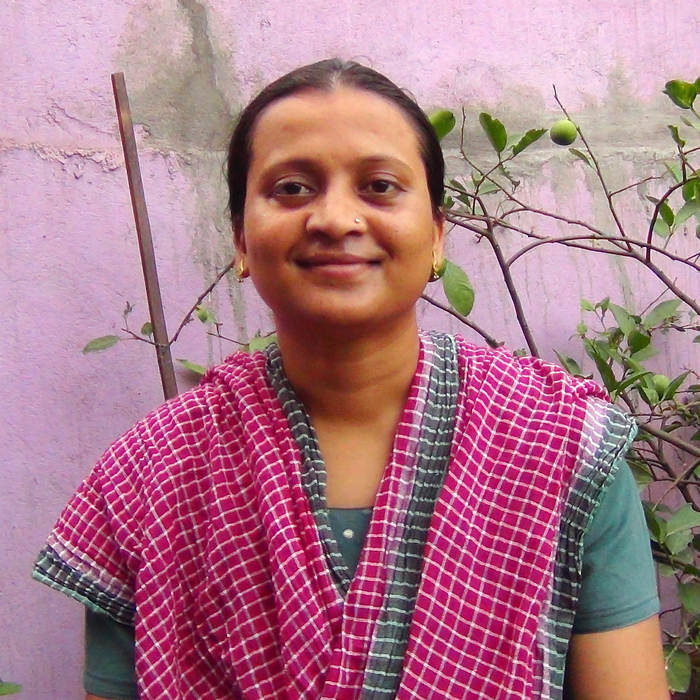
Basirun Khatun
Basirun is a pediatric intensive care nurse and works at a local hospital. She is also a trainer at the Village Nurse Midwife Healthcare Training centers and manages accounts for the GumCha4Health project. Basirun is 29 years old and also holds a BA degree from Rampurhat College.
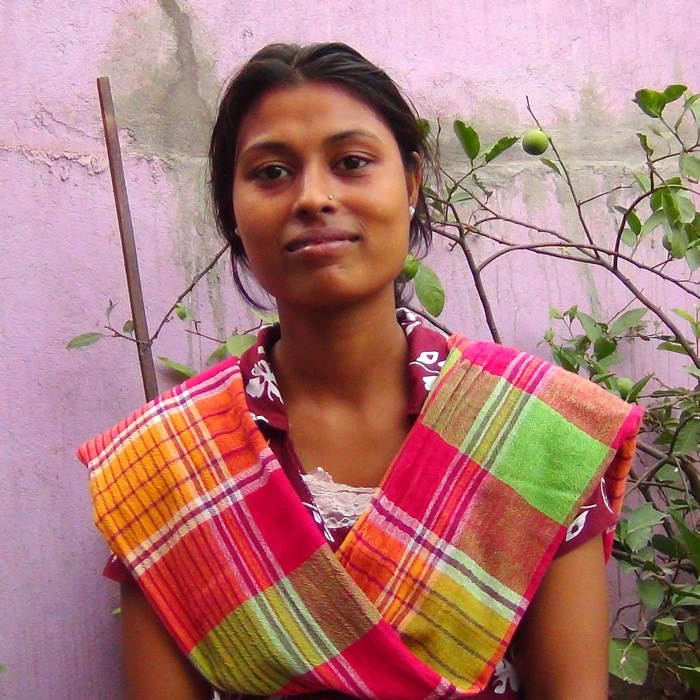
Puja Sutradhau
Puja attends college at Sailajananda Falguni Smriti Mahavidyalaya, Khayrasole. She is also a graduate of Drs. Ali’s Village Nurse Midwife Healthcare Training Program and has received computer training. Puja is 17 years old and works in the GumCha processing, labeling and shipping area of the project.
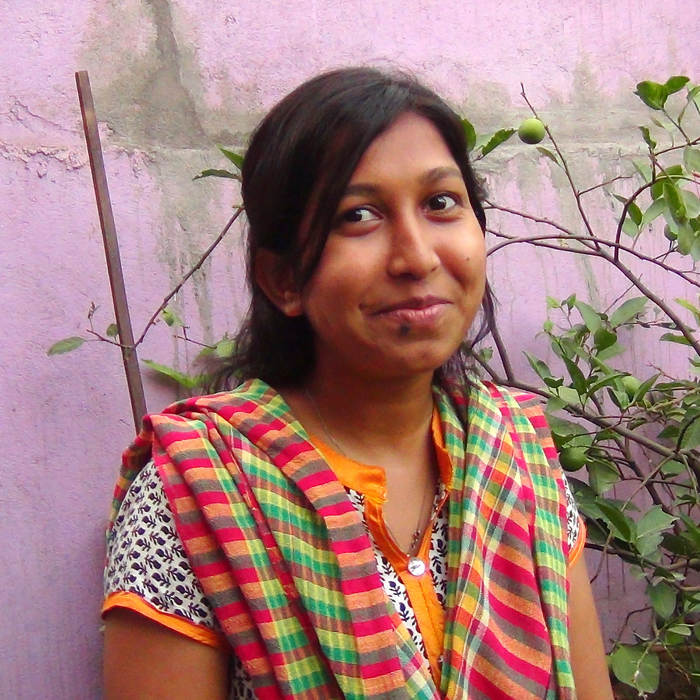
Sanam Ali
Sanam received her BA from Women’s Christian College, Kolkata and has extensive university computer training. Sanam maintains communications and the technical end of things for GumCha4Health. She is 24 years old and is completing her Masters degree in English.
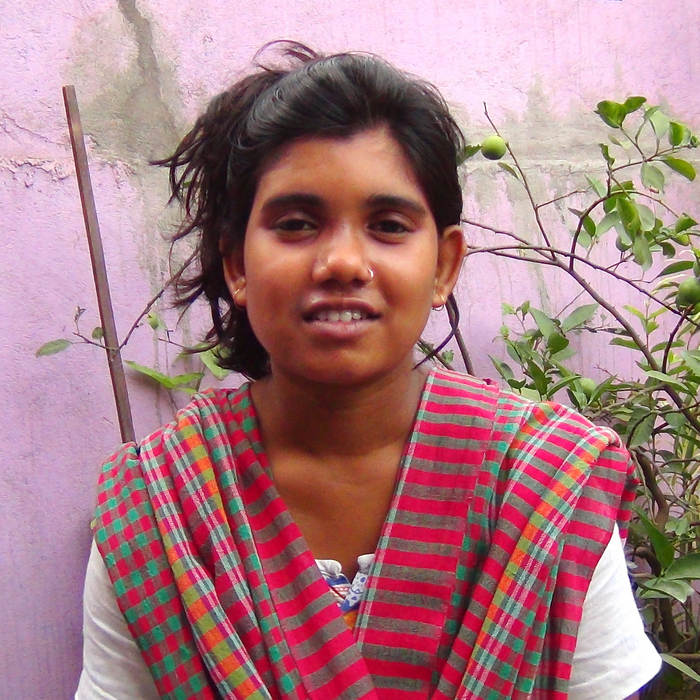
Pinki Dhibar
Pinki attends college at Abhedananda Mahavidyalaya, Sainthia. She is also a graduate of Drs. Ali’s Village Nurse Midwife Healthcare Training Program and has received computer training. Pinki is 19 years old and works in the GumCha processing, labeling and shipping area of the project.
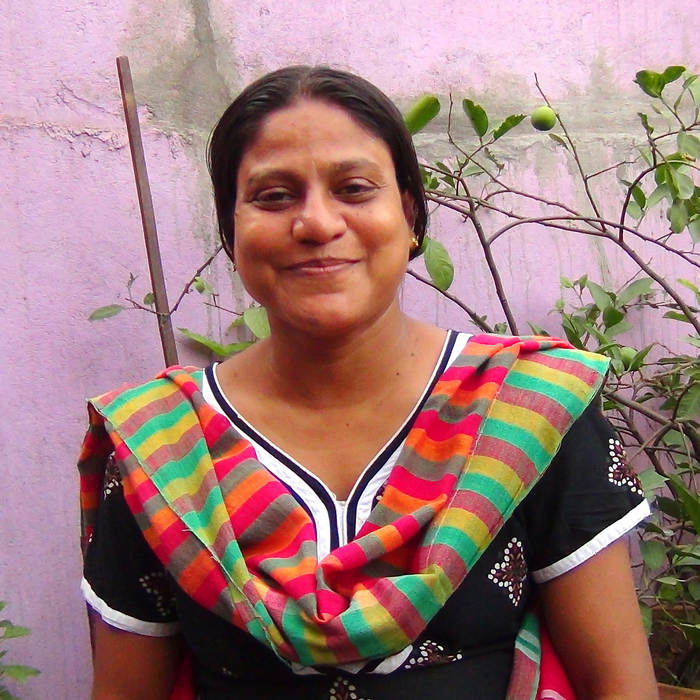
Chandana Das
Chandana is a trainer and program manager in the Village Nurse Midwife Healthcare Training Program. She, along with her other duties, handles personnel, shipping and logistics for the project. Chandana is 38 years old and has been working with the Drs. Ali for 18 years.
In 2016 Dr. Ali and Dr. Moli celebrated the anniversary of 30 years of service to rural communities in medical practice, health program design and organization to serve the rural poor. 2016 also marked 20 years since they founded the Rampurhat Railpar Rural and Urban Health Training Society (a registered nonprofit NGO), where they developed a self-sufficient, self-sustaining training model to provide training for community health workers serving in rural communities.
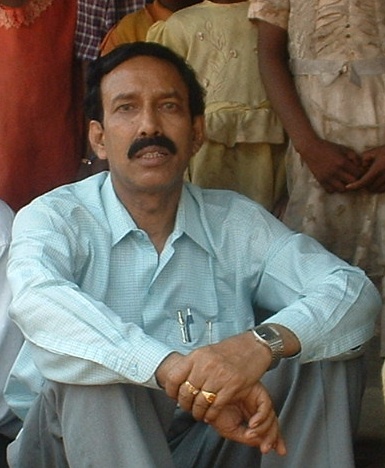

2016 also marked the founding of GumCha 4 Health Pvt Ltd. in India, a for-profit company working in partnership with its US counterpart GumCha4Health LLC to build the infrastructure, processing, marketing and order fulfillment functions of the GumCha4Health Project. Dr. Ali and Dr. Moli are joint managing directors.

Providing child health services and education

Providing prenatal health services and Community Health Worker Training
Drs. Iliash and Moli Ali met and married while students in medical school, and vowed to spend their lives together serving the rural poor. After graduation, they returned to Iliash’s home in Rampurhat, Birbhum District, to eventually form the Rampurhat Railpar Rural and Urban Health Training Society. Working initially under the direction of their long-time Kolkata mentor, Dr. Biral Mullick, their program trains community health workers, village midwives, nursing assistants serving in pediatric intensive care, and community medical service personnel.
The training program has graduated over 6,000 students who are now serving their families and communities. There are currently over 800 students enrolled in 18-month or one-year programs. The Drs. Ali have accomplished this using a self-sufficient, self-sustaining financial model, which has allowed them to expand their work into other health services in the area.
A truly outstanding achievement in community-based self-sustaining rural health programs.
PROVIDING HEALTH SERVICES AND EDUCATION
The Drs. Ali develop local program efforts that directly provide health awareness, illness detection and treatment services, as well as indirectly counsel people with symptoms on where to confirm diagnoses and obtain treatment.
They serve the rural poor and, with their thousands of former students, are essential links to life-saving interventions in areas such as:
DELIVERING THE WOMAN AND MAN POWER FOR HEALTH PROGRAMS AND PARTNERSHIPS
They build partnerships with national and state governments and health-related NGOs for organizing local volunteers to assist in carrying out national public health programs.
Partners:
Red Cross
UNICEF
CARE
Marie Stopes
USAID
Lions Club
State and national government
Projects:

Distributing oral contraceptives and health education

Conducting postnatal infant check ups

Organizing health training for young women in remote areas to respond correctly and quickly to illnesses in infants and children

In a relatively small northeastern section of our District, around the village of Kashimnagar (within walking distance of the Ganges River), there are estimated to be over 3,000 farmer/weavers. This area of West Bengal has been known as the home of master weavers since before the Third Century BC. Subsistence farming economies in our area depend on cottage industries like weaving with a simple handloom to provide much-needed income for local families. With over 50% of the people in the area living below the rural poverty line in households with per capita incomes of less than $.50/day, weaving GumCha has been an indispensable economic activity for generations.
The GumCha4Health project is working with a growing network of weavers introduced to us through a well-respected master weaver/designer and farmer well-known to Dr. Ali. With your support, this network will continue to grow. And it needs to grow.
Drastic increases in the cost of cotton during the past five years, as well is the introduction of cheap machine-made polyester/cotton blends, has made it difficult for weavers to earn an adequate income from weaving 100% cotton GumCha. Many families have been forced to stop weaving and find other sources of income, including becoming day laborers on construction sites far away from their homes and farms. The difficulty faced by weavers could be a permanent result of the now-globalized Indian cotton market. The GumCha4Health project thinks that we can make globalization work for small subsistence farmers/weavers. Many hundreds, perhaps thousands, of farming families who have depended on their skills as weaver artisans to hold households and farms together can return to self-sufficiency by working with us as we open new markets for their handloomed GumCha.
One of the first goals of the project is to ensure that our program will triple the income that farmer/weavers derive from weaving GumCha. This of course will be an immense boon to farm family economies, as well as support the survival of a valuable artisan craft that is more than 2,000 years old.
Over 3.5 million people live in our district.
Its population growth rate was 16.15% from 2001-11.
87.17 % of the population lives in rural villages.
Over 50% of citizens belong to families where the per capita income is less than $.50 a day.
80% of the population are in traditionally underdeveloped groups.
48.2% of currently married rural women are illiterate.
Only 11.0% of married rural women have at least 10 years of education.
The population of children 0-6 years of age is 448,485 (about 13% of the total).
Only 6.4% use clean fuel for cooking.
The total unmet need for family planning services is 14.9%.

Birbhum District has a population of 3,502,404, making it higher in population than the nations of Jamaica, Mongolia or Armenia, and about the same as Lithuania or the state of Connecticut.
According to the 2011 census, the population density is 771 inhabitants per square kilometer, with 65% of the population Hindu and 35% Muslim. Thirty percent of the population belongs to the “scheduled castes” (lowest castes) and 7% to the “scheduled tribes.” Other than those speaking the local dialect of Bengali, there are the indigenous Santhals – an ancient, Sanskrit-speaking minority tribe – and 10 other tribal communities. In 2006 the Government of India named Birbhum one of the country's 250 most backward districts in terms of human resource development (out of a total of 640).
In the rural areas that our Society serves, high population density means dependence of a larger number of people on relatively scarce land. High population density also limits the possibility for sustenance of the residents based on local agriculture. In the absence of adequate capacity for non-farm activities, people face livelihood-related problems, which severely constrain the prospect of human development.
Drs. Iliash and Moli Ali hope to continue to use their 30 years of experience in medical practice and health program design and organization to serve the rural poor, utilizing a self-sufficient, self-sustaining financial model.
Roger and Margaret have been associated with the International Federation for Family Health (IFFH) (a United States 501c3 nonprofit) in various capacities since 1992. Roger has worked closely with the Drs. Ali in Rampurhat as IFFH Project Development Officer since 2002. Margaret serves as IFFH’s Vice President.
The couple live in Pittsboro, North Carolina, USA, and divides their time between duties associated with IFFH, GumCha4Health, and their small farm just south of Chapel Hill, NC.


Since 1979, IFFH has supported local professionals and organizations internationally in the development, adaptation, replication and implementation of innovations in the fields of maternal, neonatal and child health, contraception technologies, and primary healthcare delivery systems.
The aim of the organization is to increase access to adequate healthcare, reduce the cost of illness to families and communities, and improve public health through the advancement of community-based solutions that address the behavioral, social, economic, technological and environmental factors that determine the health of people in resource poor areas.
Our strategy is to actively develop and promote community-based, self-sufficient, self-sustaining solutions for comprehensive healthcare delivery in resource poor areas.
The International Federation for Family Health (IFFH) is a 501c(3) nonprofit organization registered in the United States. More information can be found at www.IFFH.org
1. Community-based healthcare and health education for poor rural farm laborers, subsistence farmers, their families and their communities.
2. The development of the rural farm economy in our service area by tripling the income of subsistence farmer/weavers for weaving GumCha.
3. Projects that address the health issues of the rural poor, and the economic and educational needs of agriculturally based communities.
4. The creation of a dependable international market for a unique, useful, handmade product, by introducing GumCha to the Americas and Europe.